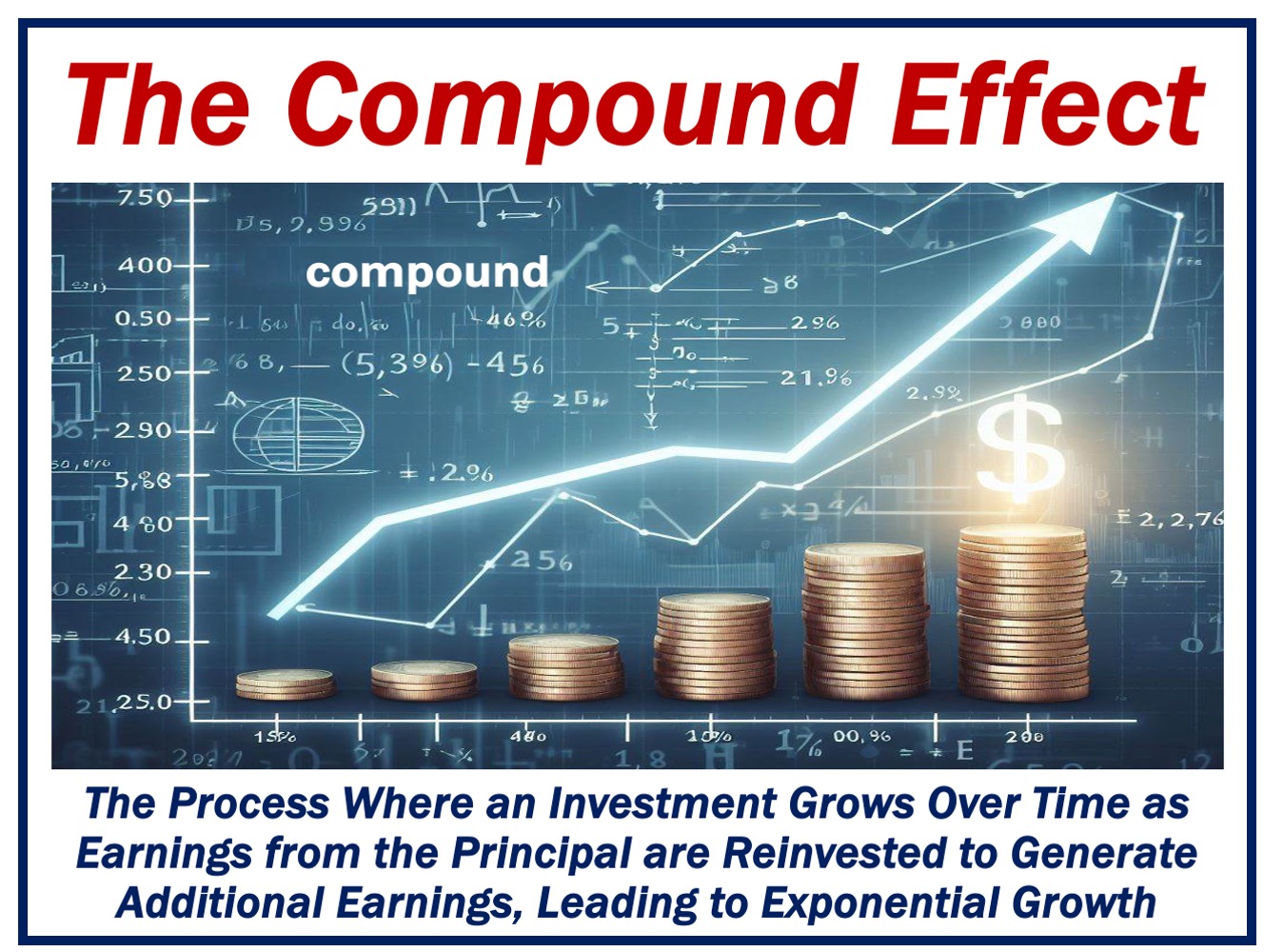The Compound Effect is a strategy of getting huge rewards from small, seemingly insignificant actions. This principle is used in personal development, business, and finance. It is basically the idea that small, consistent actions over time can lead to significant results. In the world of finance and investments, it is how a small amount of money grows exponentially over time due to compound interest.
In an article on forbes.com, Dean Curral wrote:
“The compound effect is the strategy of reaping huge rewards from a group of small actions.”
Principles
The following are the principles of the compound effect:
-
Consistency
Regular actions, no matter how small.
-
Patience
Remember that significant results take time.
-
Incremental growth
The benefits may not always be seen immediately, but they will accumulate over time.
Compound effect – personal development
-
Habit Formation
Small daily habits have the potential to lead to significant changes in health, knowledge, and personal growth.
-
Goal Achievement
If you consistently put effort into a smaller goal it’ll gradually lead to the achievement of that goal and potentially a more significant one.

Compound effect – finance
-
Savings and Investment
Regular investments grow over time due to compound interest.
-
Debt Reduction
Small, consistent payments over time can reduce the lifespan and interest cost of a loan.
Compound effect – business
-
Skill Development
Continuous learning and skill development can help you to advance your career.
-
Productivity
Incremental improvements in efficiency can significantly boost overall productivity and profitability.
Advantages
Several advantages come with the compound effect, including:
-
More easily Attainable
Small actions are manageable and easier to do since they’re less overwhelming.
-
Sustainable
It’s easier to stay consistent with smaller steps.
-
Powerful Long-Term Results
Small actions can have a significant cumulative effect over time.
Challenges and Misconceptions
Navigating the compounding effect comes with its set of challenges and misconceptions, including:
-
Instant Gratification
In a world used to instant gratification, the compound effect’s slow nature can be discouraging.
-
Misjudgment
The impact of small actions is often underestimated.
Similar expressions
Below are ten idioms that express similar concepts to “The Compound Effect”:
- “Rome wasn’t built in a day.”
- “Little drops of water make a mighty ocean.”
- “A journey of a thousand miles begins with a single step.” – Lao Tzu
- “Every little helps.”
- “Great oaks from little acorns grow.”
- “Step by step, the ladder is ascended.”
- “Drop by drop fills the tub.”
- “Brick by brick, my citizens, brick by brick.”
- “Patience, persistence, and perspiration make an unbeatable combination for success.”
- “If you look after the pennies, the pounds will look after themselves.”
Darren Hardy
Darren Hardy, an American author, motivational speaker, and former publisher of SUCCESS magazine, wrote a book titled “The Compound Effect” in 2010.
The book focuses on the principle that small, consistent actions over time can lead to significant results. Hardy emphasizes the power of daily habits and decisions in driving substantial success and improvement in one’s life.
His work has inspired people and organizations to adopt incremental changes, significantly impacting personal development and productivity practices worldwide.
Written by Nicolas Perez Diaz
